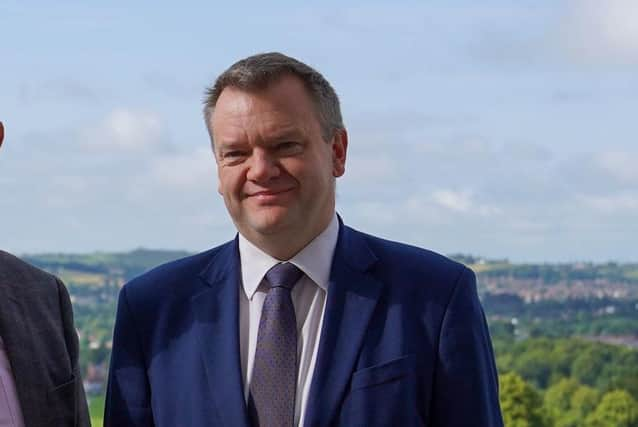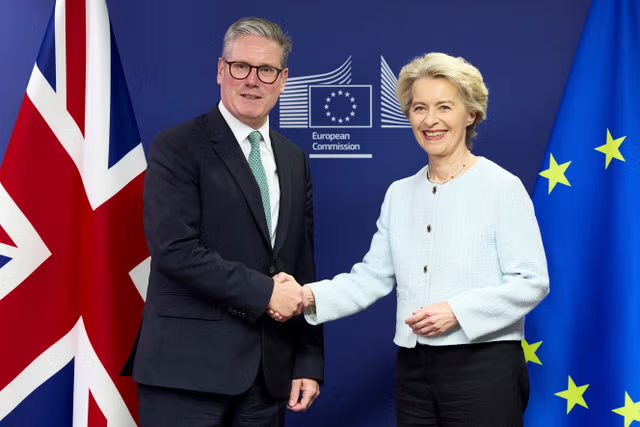The UK government has signaled its intent to forge a renewed partnership with the European Union, centered on economic growth and pragmatic cooperation. The UK’s chief negotiator, Nick Thomas-Symonds, described the new deal as a break from the “debates and arguments of the past,” emphasizing a future-focused approach that prioritizes national interests over lingering ideological battles.
As Prime Minister Keir Starmer prepares to host European Commission President Ursula von der Leyen in London, anticipation is mounting for a pivotal EU-UK summit set for May. The upcoming meeting underscores the Labour government’s commitment to rebuilding bridges with the bloc while steering clear of rejoining institutions like the single market or customs union.
A central aspect of the talks is expected to be enhanced regulatory alignment in trade, an area that previously divided UK politics. Eurosceptic voices once championed maximum divergence from Brussels, but the current leadership appears to favor a more harmonized approach to foster stability and economic opportunity.
“We want to put more money in the pockets of working people and provide Britain with long-term stability and security. We won’t be defined by debates and arguments of the past.”
Nick Thomas-Symonds
The minister hinted that the urgency of the negotiations is partially driven by broader geopolitical dynamics, including a looming global recession triggered by new tariffs from U.S. President Donald Trump and faltering unity over support for Ukraine. Labour, he noted, is “rising to meet the challenges in this new era of global instability.”
Labour Eyes Growth Over Past Divisions
Sources close to the negotiations revealed that the UK is close to launching formal discussions on three major areas: a youth mobility scheme, a sanitary and phytosanitary (SPS) agreement to smooth trade in food and drink, and a climate-focused deal on carbon emissions.
The SPS agreement, modeled in part on a 2023 deal between the EU and Switzerland, would ease checks on goods moving from Great Britain to Northern Ireland and into the EU. Although similar in structure, significant adjustments are expected to tailor it to UK needs.
Additionally, momentum is building around a comprehensive defence pact. The EU’s recent white paper on defence has opened the door for UK companies like Babcock and BAE Systems to tap into the €150 billion (£129 billion) EU defence fund, a move that could bolster cross-border military collaboration.
An announcement on new measures to tackle irregular migration, particularly in trafficking and intelligence-sharing, is also anticipated, signaling a firm stance on border security amid ongoing public concern.
Throughout the negotiations, Thomas-Symonds said the government would remain laser-focused on practical outcomes for citizens and businesses. He called on Brussels to match the UK’s forward-looking attitude, stating: “The time is right for the EU to fully reset its approach to the UK after years of political division.”
“Britain is a politically stable country, and the government has a huge mandate, with over four years left to deliver our policies. We’ve shown that Britain is back on the world stage, and that it has a lot to offer.”
Nick Thomas-Symonds

The forthcoming meeting between Starmer and von der Leyen is expected to assess progress made so far and ensure preparations are on track for the May 19 summit. According to Thomas-Symonds, the objective is clear: “To grow the economy, boost living standards, and keep the UK safe.”
Despite this cooperative tone, Labour has drawn a firm line against rejoining the single market, customs union, or restoring freedom of movement. One of the most debated elements of the upcoming deal is a youth mobility visa program for EU citizens. Starmer faces pressure from over 60 Labour MPs to support a framework that allows young Europeans to live and work in the UK.
Chancellor Rachel Reeves acknowledged that “discussions on a potential scheme were ongoing,” indicating that a compromise could be near. However, internal cabinet disagreements persist. While Reeves supports a time-limited visa scheme — Brussels’ preferred option — Home Secretary Yvette Cooper has pushed for a cap on the number of applicants and a strict one-year limit.
As negotiations unfold, the UK government appears determined to strike a balance between openness and control, promising a future defined not by past divisions, but by common-sense cooperation.
READ ALSO: Akufo-Addo’s Prima Facie ‘Misstep’ In CJ Petition Slammed




















